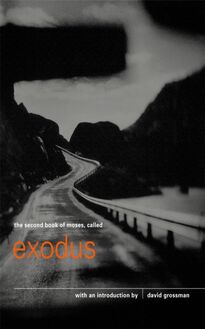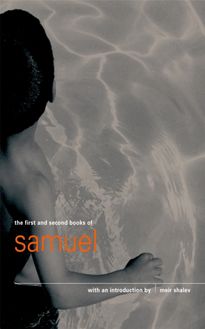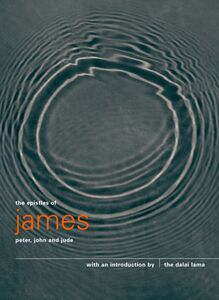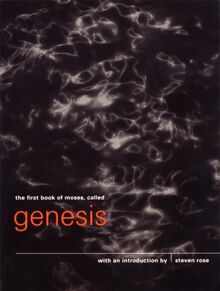Book of Psalms , livre ebook
203
pages
English
Ebooks
1999
Vous pourrez modifier la taille du texte de cet ouvrage
Obtenez un accès à la bibliothèque pour le consulter en ligne En savoir plus
Découvre YouScribe et accède à tout notre catalogue !
Découvre YouScribe et accède à tout notre catalogue !
203
pages
English
Ebooks
1999
Vous pourrez modifier la taille du texte de cet ouvrage
Obtenez un accès à la bibliothèque pour le consulter en ligne En savoir plus
Publié par
Date de parution
01 janvier 1999
Nombre de lectures
2
EAN13
9781847676689
Langue
English
Contents
Title Page a note about pocket canons introduction by bono the book of psalms 1 2 3 4 5 6 7 8 9 10 11 12 13 14 15 16 17 18 19 20 21 22 23 24 25 26 27 28 29 30 31 32 33 34 35 36 37 38 39 40 41 42 43 44 45 46 47 48 49 50 51 52 53 54 55 56 57 58 59 60 61 62 63 64 65 66 67 68 69 70 71 72 73 74 75 76 77 78 79 80 81 82 83 84 85 86 87 88 89 90 91 92 93 94 95 96 97 98 99 100 101 102 103 104 105 106 107 108 109 110 111 112 113 114 115 116 117 118 119 120 121 122 123 124 125 126 127 128 129 130 131 132 133 134 135 136 137 138 139 140 141 142 143 144 145 146 147 148 149 150 Copyright
a note about pocket canons
The Authorised King James Version of the Bible, translated between 1603–11, coincided with an extraordinary flowering of English literature. This version, more than any other, and possibly more than any other work in history, has had an influence in shaping the language we speak and write today.
Twenty-four of the eighty original books of the King James Bible are brought to you in this series. They encompass categories as diverse as history, philosophy, law, poetry and fiction. Each Pocket Canon also has its own introduction, specially commissioned from an impressive range of writers, to provide a personal interpretation of the text and explore its contemporary relevance.
introduction by bono
Bono was born (Paul David Hewson) in Dublin in 1960 . At seven teen he joined the embryonic U2 with three school-friends. U2 released their first record with Island Records in April 1980 and have gone on to sell 87 million albums worldwide, gathering seven Grammies in the US and five Brit Awards in the UK along the way. In 1992 their ground-breaking Zoo TV tour was hailed as the most innovative spectacle ever staged. The follow-up, 1997 ’s Pop-Mart tour, built on that inventiveness, and played to a record- breaking four million people worldwide. In 1994 Bono was invited to present the Lifetime Achievement Award to Frank Sinatra at the Grammies. He was the guest speaker at the UK International Year of Literature in 1995 . The Million Dollar Hotel , a film based on a story co-written by Bono, is currently in production starring Mel Gibson and directed by Wim Wenders. Bono lives in Dublin with his wife and three children.
Explaining belief has always been difficult. How do you explain a love and logic at the heart of the universe when the world is so out of whack? How about the poetic versus the actual truth found in the scriptures? Has free will got us crucified? And what about the dodgy characters who inhabit the tome, known as the bible, who claim to hear the voice of God?
You have to be interested, but is God?
Explaining faith is impossible … Vision over visibility … Instinct over intellect … A songwriter plays a chord with the faith that he will hear the next one in his head.
One of the writers of the psalms was a musician, a harp-player whose talents were required at ‘the palace’ as the only medicine that would still the demons of the moody and insecure King Saul of Israel; a thought that still inspires, if not quite explaining Marilyn singing for Kennedy, or the Spice Girls in the court of Prince Charles …
At age 12, I was a fan of David, he felt familiar … like a pop star could feel familiar. The words of the psalms were as poetic as they were religious and he was a star. A dramatic character, because before David could fulfil the prophecy and become the king of Israel, he had to take quite a beating. He was forced into exile and ended up in a cave in some no-name border town facing the collapse of his ego and abandonment by God. But this is where the soap opera got interesting, this is where David was said to have composed his first psalm – a blues. That’s what a lot of the psalms feel like to me, the blues. Man shouting at God – ‘My God, my God why hast thou forsaken me? Why art thou so far from helping me?’ (Psalm 22).
I hear echoes of this holy row when un-holy bluesman Robert Johnson howls ‘There’s a hellhound on my trail’ or Van Morrison sings ‘Sometimes I feel like a motherless child’. Texas Alexander mimics the psalms in ‘Justice Blues’: ‘I cried Lord my father, Lord eh Kingdom come. Send me back my woman, then thy will be done’. Humorous, sometimes blasphemous, the blues was backslidin’ music; but by its very opposition, flattered the subject of its perfect cousin Gospel.
Abandonment, displacement, is the stuff of my favourite psalms. The Psalter may be a font of gospel music, but for me it’s in his despair that the psalmist really reveals the nature of his special relationship with God. Honesty, even to the point of anger. ‘How long, Lord? Wilt thou hide thyself forever?’ (Psalm 89) or ‘Answer me when I call’ (Psalm 5).
Psalms and hymns were my first taste of inspirational music. I liked the words but I wasn’t sure about the tunes – with the exception of Psalm 23, ‘The Lord is my Shepherd’. I remember them as droned and chanted rather than sung. Still, in an odd way, they prepared me for the honesty of John Lennon, the baroque language of Bob Dylan and Leonard Cohen, the open throat of Al Green and Stevie Wonder – when I hear these singers, I am reconnected to a part of me I have no explanation for … my ‘soul’ I guess.
Words and music did for me what solid, even rigorous, religious argument could never do, they introduced me to God, not belief in God, more an experiential sense of GOD. Over art, literature, reason, the way in to my spirit was a combination of words and music. As a result the Book of Psalms always felt open to me and led me to the poetry of Ecclesiastes , the Song of Solomon , the book of John … My religion could not be fiction but it had to transcend facts. It could be mystical, but not mythical and definitely not ritual …
My mother was Protestant, my father Catholic; anywhere other than Ireland that would be unremarkable. The ‘Prods’ at that time had the better tunes and the Catholics had the better stage-gear. My mate Gavin Friday used to say: ‘Roman Catholicism is the Glamrock of religion’ with its candles and psychedelic colours … Cardinal blues, scarlets and purples, smoke bombs of incense and the ring of the little bell. The Prods were better at the bigger bells, they could afford them. In Ireland wealth and Protestantism went together; to have either, was to have collaborated with the enemy, i.e. Britain. This did not fly in our house.
After going to Mass at the top of the hill, in Finglas on the north side of Dublin, my father waited outside the little Church of Ireland chapel at the bottom of the hill, where my mother had brought her two sons …
I kept myself awake thinking of the clergyman’s daughter and let my eyes dive into the cinema of the stained glass. These Christian artisans had invented the movies … light projected through colour to tell their story. In the ‘70s the story was ‘the Troubles’ and the Troubles came through the stained glass; with rocks thrown more in mischief than in anger, but the message was the same; the country was to be divided along sectarian lines. I had a foot in both camps, so my Goliath became religion itself; I began to see religion as the perversion of faith. As to the five smooth stones for the sling … I began to see God everywhere else. In girls, fun, music, justice but still – despite the lofty King James translation – the scriptures …
I loved these stories for the basest reasons, not just the New Testament with its mind-altering concept that God might reveal himself as a baby born in straw poverty – but even the Old Testament. These were action movies, with some hardcore men and women … the car chases, the casualties, the blood and guts; there was very little kissing …
David was a star, the Elvis of the bible, if we can believe the chiselling of Michelangelo (check the face – but I still can’t figure out this most famous Jew’s foreskin). And unusually for such a ‘rock star’, with his lust for power, lust for women, lust for life, he had the humility of one who knew his gift worked harder than he ever would. He even danced naked in front of his troops … the biblical equivalent of the royal walkabout. David was definitely more performance artist than politician.
Anyway, I stopped going to churches and got myself into a different kind of religion. Don’t laugh, that’s what being in a rock ‘n’ roll band is, not pseudo-religion either … Show-business is Shamanism: Music is Worship; whether it’s worship of women or their designer, the world or its destroyer, whether it comes from that ancient place we call soul or simply the spinal cortex, whether the prayers are on fire with a dumb rage or dove-like desire … the smoke goes upwards … to God or something you replace God with … usually yourself.
Years ago, lost for words and forty minutes of recording time left before the end of our studio time, we were still looking for a song to close our third album, War . We wanted to put something explicitly spiritual on the record to balance the politics and the romance of it; like Bob Marley or Marvin Gaye would. We thought about the psalms … ‘Psalm 40’ … There was some squirming. We were a very ‘white’ rock group, and such plundering of the scriptures was taboo for a white rock group unless it was in the ‘service of Satan’. Or worse, Goth.
‘Psalm 40’ is interesting in that it suggests a time in which grace will replace karma, and love replace the very strict laws of Moses (i.e. fulfil them). I love that thought. David, who committed some of the most selfish as well as self














